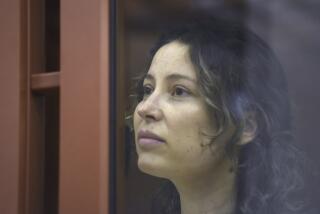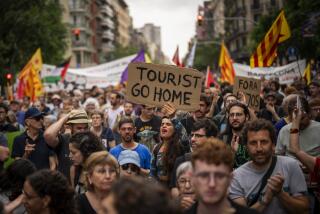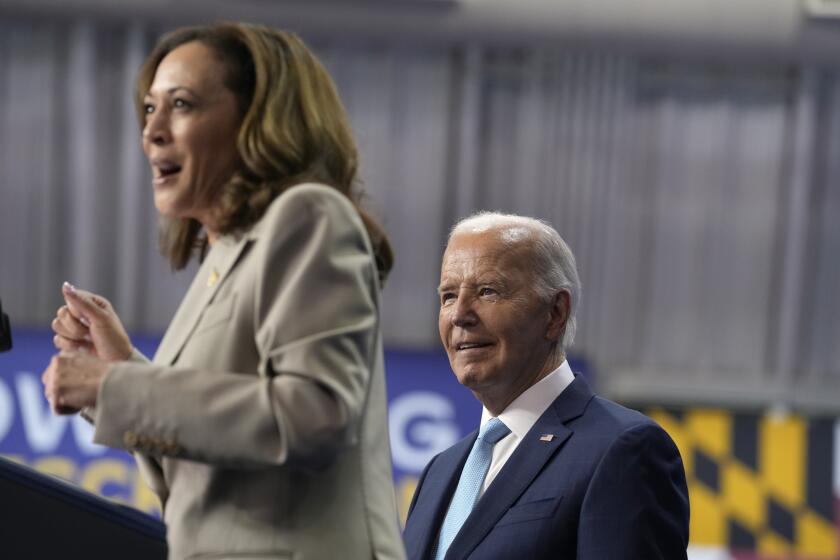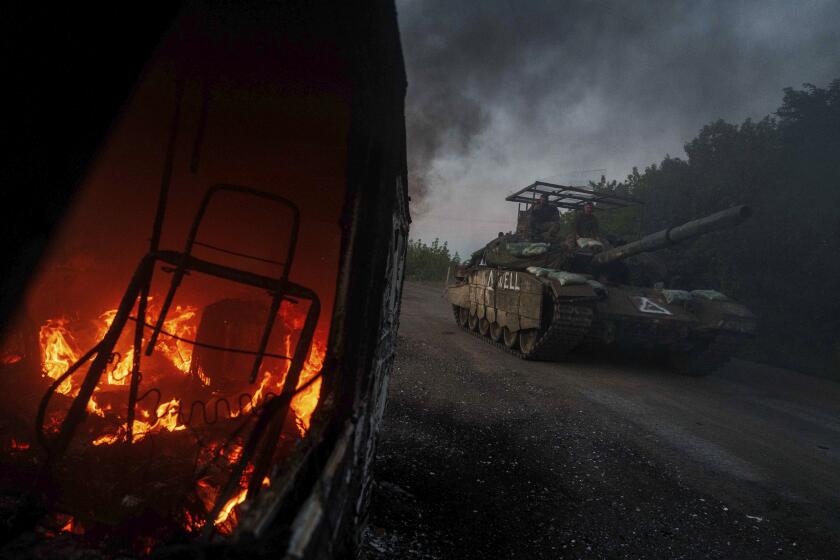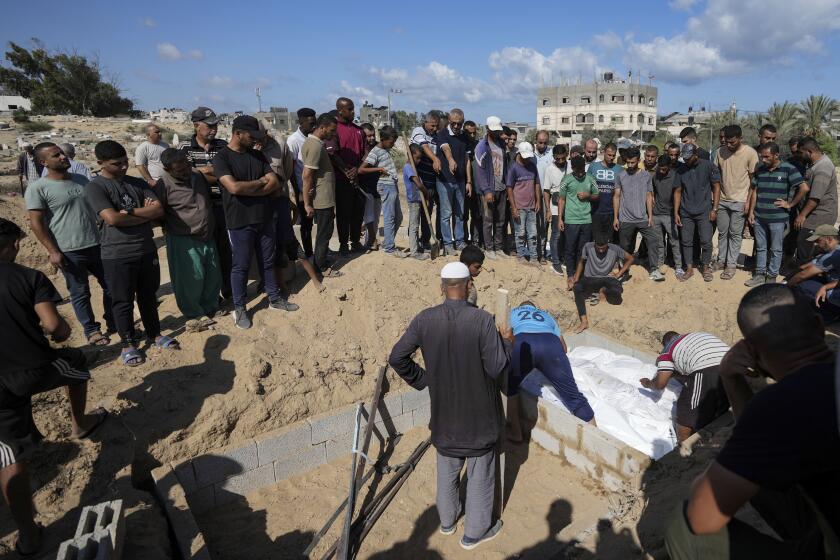Fierce Clash Between Rebels, Russian Troops
About 200 Chechen rebels clashed Thursday with Russian army troops backed by bombers and helicopter gunships in a rare large-scale battle in Russia’s three-year war with the separatists.
A fierce firefight broke out at 5 a.m. in the village of Galashki in the republic of Ingushetia, which borders Chechnya. Fourteen Russian servicemen--including two crew members of a helicopter that was shot down--and an undetermined number of Chechen fighters were killed during the six-hour battle, Russian officials said.
Among those also reported killed were a civilian woman and a British freelance cameraman who had apparently been traveling with the rebels.
Some Russian officials said that as many as 40 rebels had been killed, but a police officer and journalist at the scene said by telephone that they saw only four or five bodies of slain rebels in the streets of Galashki.
The battle was unusual because it took place in Ingushetia, to the west of Chechnya.
The Chechens, thought to be led by warlord commander Ruslan Gelayev, apparently had left the Pankisi Gorge area of Georgia several days earlier, crossed north into Russia, and had made their way on foot across 60 miles of forest and mountains toward Chechnya before encountering any serious resistance from the Russian forces.
Senior Lt. Ruslan Khashiyev, of the Sunzha district police department of Ingushetia, said in a phone interview with The Times that Russian forces had heard of the Chechen group’s advance and had set up an outpost to wait for them in Galashki, a village just nine miles from the Chechen border.
When the Russians found themselves under attack, they immediately called for reinforcements and air support, but they were overrun by the Chechens.
“The rebels easily sliced through them and went into the village,” Khashiyev said. “When two helicopters appeared in the sky, the rebels shot one down with an antiaircraft rocket. The crew burned to death during the crash.”
A local woman, Roza Khakiyeva, said she woke up early in the morning and heard shots and explosions.
“I looked out the window and saw armed men running in the street toward the bridge. I could see an armored car drive up to the village when suddenly it stopped, caught fire and started falling over a cliff off the road.”
She hid in her home. “This is the first time I saw war. It was horrible,” she said. “I never thought it could come here to our village. It is very, very scary.”
Cut off by heavy Russian fire from using a bridge over the Assa River to flee the village, the Chechens instead forded the icy stream and escaped, Khashiyev said. Afterward, Russian bombers dropped explosives on the surrounding forest and police conducted house-to-house searches.
“I don’t know how many rebels they killed like this. I didn’t see their bodies,” he said.
A defense analyst, Alexander I. Zhilin, who writes for the Moscow News weekly, said many things about the operation did not add up.
“The biggest question is how the military dares to let a couple of hundred of rebels into a big, densely populated village,” he said. “How come the rebels crossed our border and walked unopposed for dozens of miles until they basically reached the border of Chechnya?”
Zhilin said Russian officials in recent weeks have been harshly critical of Georgia, another former Soviet state, for not taking a tougher stance on rebels seeking sanctuary there, but he said the same criticism could be leveled at the Russians themselves.
“I would like the authorities to explain why the rebels were not bombed into smithereens when they crossed the border into Russia, no matter who helped them in Georgia,” he said.
Speaking in Warsaw on Thursday, Russian Defense Minister Sergei B. Ivanov said the Galashki incident “well could be” the last straw in Moscow’s dealings with Georgia. “If we see that terrorists have crossed the Russian-Georgian border or are preparing to do so, we will not wait around for them to commit crimes,” he said.
After the battle, journalists in Galashki were shown four bodies of people killed in the battle, one of which was believed to be that of the British cameraman.
Russian forces said they found the body and an accompanying passport with the name Roderick John Scott.
In London, Frontline Television News confirmed that a freelance cameraman known as Roddy Scott had been in Georgia for about two months.
*
Sergei L. Loiko of The Times’ Moscow Bureau contributed to this report.
More to Read
Sign up for Essential California
The most important California stories and recommendations in your inbox every morning.
You may occasionally receive promotional content from the Los Angeles Times.
